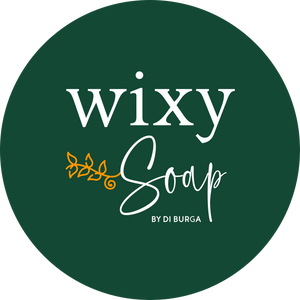The Truth About Vanilla: Why 'Vanilla Essential Oil' Is a Myth
When you think of essential oils, scents like lavender, eucalyptus, and peppermint probably come to mind. But what about vanilla? Despite its popular use in candles, perfumes, and aromatherapy products, vanilla fails to qualify as an essential oil. Why is that?
Essential oils possess a distinct set of characteristics that vanilla simply does not meet. To understand why, let's delve into what makes an oil truly 'essential':
- Extraction Process: Essential oils are typically obtained via steam distillation or cold pressing.
- Volatility: Genuine essential oils evaporate and disperse quickly when exposed to air.
- Concentration of Volatile Compounds: They contain a high concentration of volatile compounds responsible for their scent and therapeutic properties.
"Vanilla is an extraordinarily complex flavoring compound, but it lacks the concentrated volatiles needed to classify it as an essential oil." - Expert Aromatherapist
So, while the inviting warmth of vanilla might make it a favorite in your fragrance collection, it's important to recognize why it doesn't belong in the realm of true essential oils.
First, vanilla's extraction process sets it apart. Essential oils are typically extracted by steam distillation or cold pressing of plant materials, capturing their volatile aromatic compounds. Vanilla, however, needs to undergo a more complex extraction involving propylene glycol, alcohol, or CO₂ in order to extract the rich and intricate flavors from vanilla beans.
Essential oils are well-known for being highly concentrated, packed with potent aromatic and therapeutic properties. Vanilla extract, on the other hand, contains a range of additional components including water, alcohol, and often added sugars or glycerin. This makes vanilla extract is perfect for cooking and baking, but it is not suited for aromatherapy or topical applications typically associated with essential oils.
What about Vanilla Oleoresin?
Vanilla oleoresin is the middle ground between vanilla extract and essential oil. Unlike pure vanilla extract, oleoresin is a semi-solid concentrate derived by solvent extraction from cured vanilla beans. This extraction method preserves a richer, more concentrated flavor and aroma, but is not as intense as essential oils.
Vanilla oleoresin isn't as versatile as essential oils though. It doesn't dissolve well in carrier oils and is primarily used for its fragrance in applications like candles, perfumes, and certain culinary dishes. While it captures the essence of vanilla beautifully, the lack of solubility can limit its use in some aromatherapy and topical applications.
Understanding the difference between vanilla oleoresin and essential oils helps you see why vanilla is unique. Its special extraction method creates a strong but less intense aroma, making it a favorite for those who love its lovely scent and flavor in many forms.
Beware of Sellers Marketing Vanilla Essential Oils
As we've discovered, vanilla essential oil does not exist in its pure form due to the plant's nature and its extraction requirements. What you often encounter labeled as vanilla essential oil is either a synthetic compound or a blend of vanilla oleoresin with other essential oils. These products do not provide the same authentic aroma or benefits as true vanilla extract or oleoresin.
How Can Online Stores Sell A Product That Doesn't Exist?
The term 'vanilla essential oil' is often used in marketing, but it's a misnomer.
When you see 'vanilla essential oil' for sale on platforms like Amazon, it's often a blend or a fragrance oil. These products may contain a mix of vanilla absolute or oleoresin with a carrier oil or synthetic compounds designed to mimic the scent of vanilla. This is why they can be marketed as 'essential oils' even though they don't meet the strict definition.
The labeling practices for essential oils are not always strictly regulated, which allows sellers to use terms that may be misleading. This lack of regulation can lead to confusion among consumers who might think they are purchasing a pure essential oil when, in fact, they are getting a different type of product.
Student's Are Shocked!
That's exactly what happened with one of my students in class. She brought her own vanilla "essential oil" from Amazon. We had the vanilla discussion, letting her and the class know the truth about Vanilla essential oil. She was quite disappointed, opting not to use her once favorite/not anymore "essential oil" for fear of what my happen to her soap.
It's important to read the product descriptions and ingredient lists carefully. Genuine vanilla products will often be labeled as 'vanilla absolute' or 'vanilla oleoresin.' If you see 'vanilla essential oil,' it's a good idea to scrutinize the details to understand what you're actually buying.
This was an excellent teaching point in the class. If we educate consumers about the differences between essential oils, absolutes, and oleoresins we can help reduce the spread of misinformation. By understanding the nature of vanilla products, consumers can make more informed choices and avoid being misled by inaccurate labeling.
Come on over to Wixy Soap and check our Essential Oil selection
